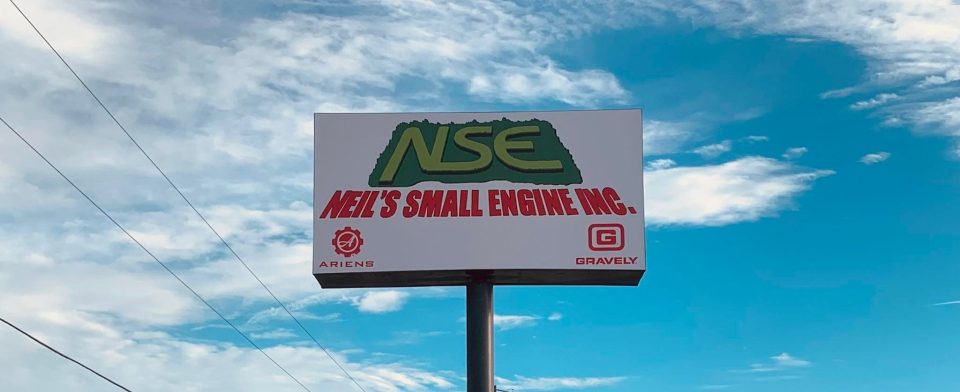
UPDATED: Injured football player ‘responding’, but still in critical condition
September 30, 2015
Alfreda Richoux
October 6, 2015There isn’t a lot that the Louisiana Legislature can do as far as passing laws to that either benefit or hinder for the oil and gas industry, but that doesn’t mean there is nothing they can do.
The Times spoke with each of the Bayou Region Senate Delegation incumbents and candidates to see what they believe they can do to affect change in the industry.
Mark Atzenhoffer, No Party-Houma, is running for the 20th Senatorial District against incumbent Norbert “Norby” Chabert and Michael “Mike” Fesi. Atzenhoffer said that legislators can’t really do anything to abate the economic war the Organization of the Petroleum Exporting Countries is waging against American shale producers to maintain their share of the world energy market.
But Atzenhoffer said there are steps that legislators can take to ensure that oil producers extract that oil in a responsible manner in order to protect the state’s other natural resources, but also protect energy companies from over-regulation.
Atzenhoffer used the case of St. Tammany Parish’s fight against Helis Oil & Gas’s fracking project near Mandeville as an example. Residents there are concerned that natural geologic features will funnel contaminants into the Abita Springs aquifer. They succeeded in getting the company’s drilling permit issued by the Department of Natural Resources vacated.
Atzenhoffer says this represents a pendulum-swing of legal precedent in the environmentalist’s direction, but that “the pendulum is starting to swing in the other direction.”
“I think it’s started balancing back towards the drilling companies’ [side],” Atzenhoffer said. “…We need to make sure that those companies are protected from [excessive regulation] to make sure that they can go through the right process, not have the process change in the middle of the game on them, let them do their job.”
But Atzenhoffer said that legislators need to ensure that penalties for sloppy drilling and environmental harm are strong enough to incentivize responsible fracking. He said that a balance must be made between environmentalists and energy companies to ensure there’s not a “free-for-all” where companies can contaminate the environment with impunity.
Michael “Mike” Fesi, R-Houma, who is also running for the 20th Senatorial District, owns Pipeline Construction and Maintenance, Inc, which builds and maintains 1000s of miles of oil and natural gas pipelines throughout the United States.
Fesi said his company is different from most in that it generates revenue from outside Louisiana and brings it back home. He said the legislature can create incentives for companies that do that in order to grow that phenomenon.
He also said that currently, many pipelines between the southern and northern United States are currently being reversed to flow southward to increase the nation’s capacity to refine the sweet, light crude produced from American shale plays.
The only problem is that there are legal impediments presented by federal regulators that will create problems for those reversals in the future when world oil supply drops and creating a good information clearinghouse for southern companies about these hurtles will help the industry prepare for and react to the changes down the road.
Fesi also said the state legislature can do more in the area of incentivizing technological innovation in the energy industry in order to reduce production costs for smaller companies that are marginalized because the big players can produce oil and gas cheaper than they can.
Another important step he would take if elected is to examine the permitting process all companies in the energy sector must go through for virtually all of their operations.
For example, he said, pipeline operators must apply for a slew of permits just to discharge fresh water from their pipelines. Another example he used was construction of facilities that was halted because CO2 emissions of construction equipment was not factored into emissions permit applications.
“It’s just a bunch of silly things ― the regulations ― we need to get our hands around and straighten them up,” Fesi said. “And it’s not regulations [to protect] hazards to the environment, it’s just regulations that don’t make any common sense anymore.”
Incumbent Sen. Norbert “Norby” Chabert, R-Houma, who is currently representing the 20th Senatorial District, said the legislature needs to create “a fair legal climate” for energy companies to do business in. He said taxes and state regulations need to be examined in order to do that, but couldn’t go into any specifics.
Chabert said if he is re-elected, he will seek the Chairmanship of the Natural Resources Committee. The committee produces legislation that directly affects the oil and gas industry in Louisiana.
“The oil and gas industry constantly finds itself in the crosshairs of just about everybody,” Chabert said. “It’s one of those situations it’s almost on a bill-by-bill basis. Anybody can file a bill that would have to come through natural resources that will either help or hurt the oil and gas community. We just need to need to ensure they have a fair environment in which to conduct business in.”
“Chris” Delpit, D-Napoleonville, is running for the 2nd Senatorial District against incumbent Troy Brown and candidate Eric Weil.
Delpit said that he hasn’t given what he can do for the oil and gas industry specifically much thought, but that his focus, if elected, would be to encourage the growth of small businesses in the state. He did say that he would speak to experts in a broad spectrum of industries, including oil and gas, to achieve that aim.
Eric Weil, No Party-Napoleonville, who is running for the 2nd Senatorial District, used to work for the Department of Natural Resources and the Department of Environmental Quality.
Weil said that the Louisiana Senate has little control over the oil and gas industry other than to pass laws. He did say, though, that there isn’t a need for more laws regulating the oil and gas industry. He said laws currently on the books are sufficient, but that enforcement of those laws is not.
Focus, he said, should be on enforcing the current laws and not creating new ones that would attempt to accomplish what they already do.
Incumbent Sen. Troy Brown, D-Napoleonville, also said the Senate can do little to help or hurt the industry by way of passing laws. But he did say that legislators can do something to stem the mass layoffs that have been occurring in the industry.
“I do think that we need to look at implementing some strategies that sort of assist many of these companies,” Brown said. “Something similar to what Congress did when the bottom fell out of the banking industry a few years ago.”
He said that Louisiana doesn’t have as much money as the federal government, but that they must recognize the importance of maintaining Louisiana’s oil and gas production and refining capacity to the whole country’s energy security.
With that caveat in mind, Brown said, the state legislature should be able to work with congress to create some kind of bail-out package for Louisiana companies.
Sen. Gary Smith, Jr., D-Norco, ran unopposed for his District 19 seat. He said he’s no expert on oil and gas, but that if the state doesn’t step in to assist the oil and gas companies, then the state will be “left at a disadvantage” when the price of “oil comes back up.”
He said companies need help to keep their skilled employees and specialized equipment so that when the market rebounds, Louisiana maintains its position as the number one producer of energy for the United States.
“It’s really one of those things where we need to work with the guys in the industry who feel it every day and may see things that we don’t see,” Smith said.
Sen. R. L. Bret Allain, II, R-Franklin, who represents the 21st Senatorial District, could not be interviewed in time for the printing of this story.












